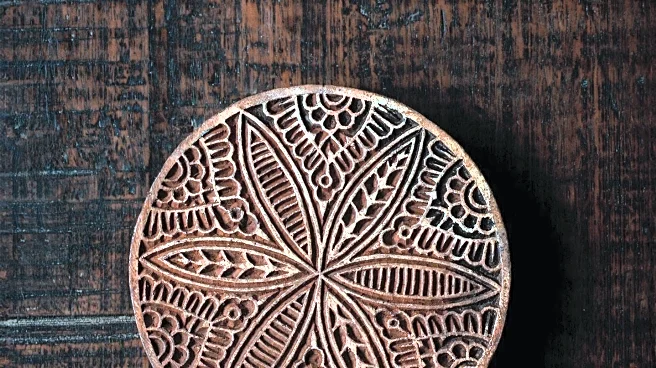What's Happening?
Archaeologists have discovered a 4,000-year-old cuneiform tablet in the ancient city of Alalah, modern-day Turkey. The tablet, inscribed with Akkadian cuneiform, details a significant furniture purchase, providing insights into the Late Bronze Age economy and administrative systems. This discovery, along with similar finds in Turkey's Hatay region, offers a glimpse into the complex trade and economic practices of ancient civilizations.
Why It's Important?
This archaeological find is crucial for understanding the economic and administrative systems of the Late Bronze Age. The tablet acts as a historical receipt, indicating the organized nature of economic transactions in ancient urban centers. Such discoveries help reconstruct the economic structures of ancient societies, which are often difficult to piece together due to the scarcity of written records. The tablet also highlights the types of goods valued in the society, such as furniture, which may have been a status symbol.
What's Next?
Further studies of the tablet's text are expected to reveal more about the roles of individuals and institutions in these transactions, as well as their implications for social stratification during the Bronze Age. Continued archaeological work at Alalah and similar sites may uncover additional artifacts that could provide a more comprehensive understanding of ancient Anatolian societies and their economic practices.










